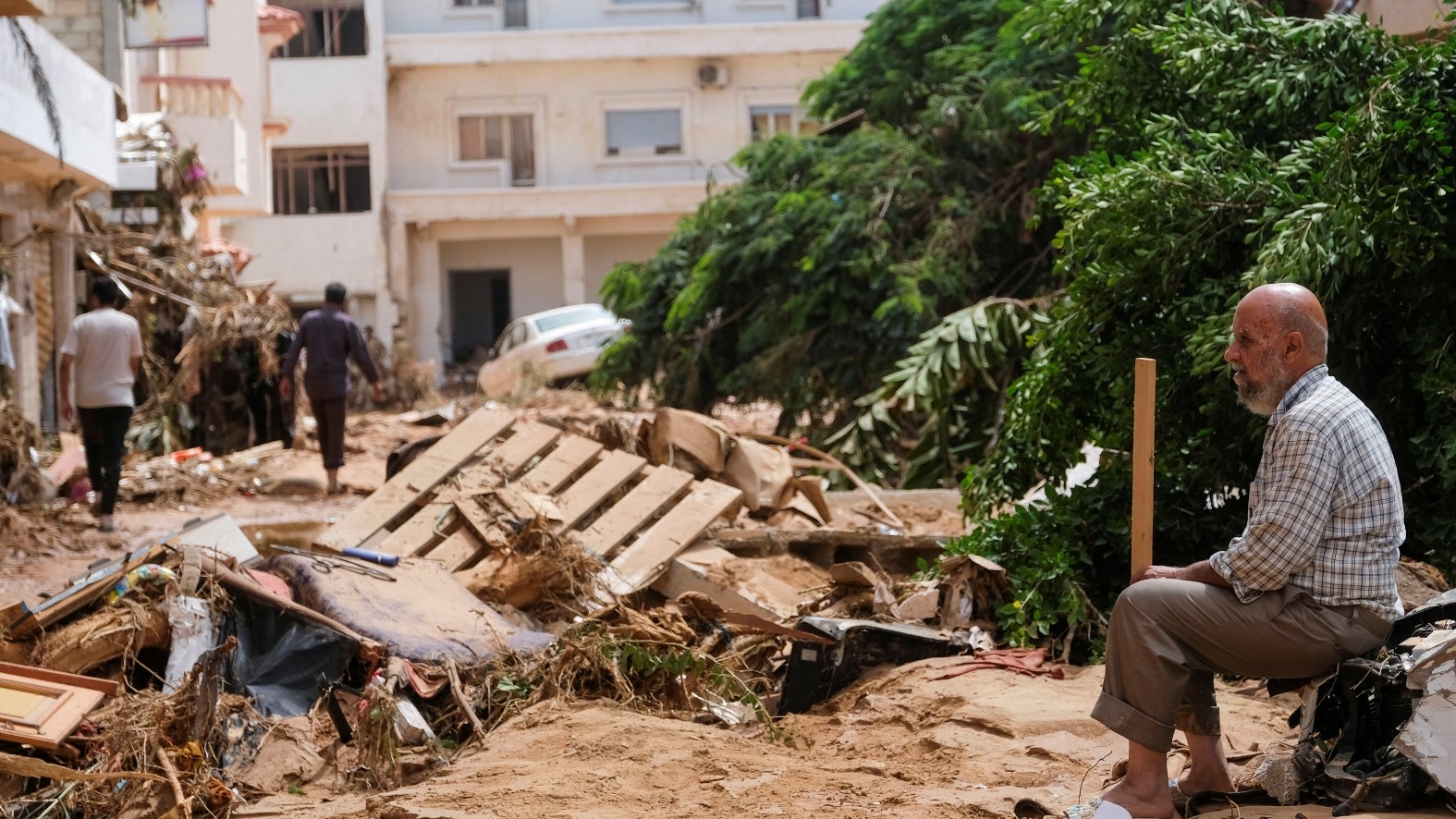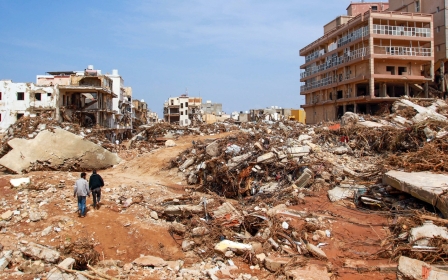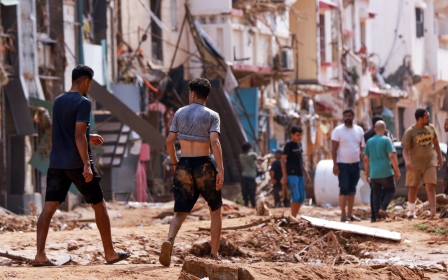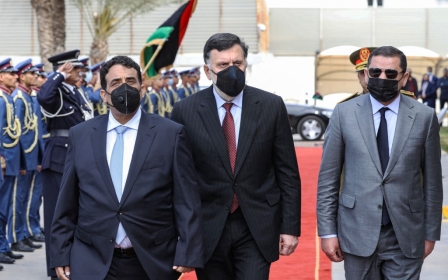Libya floods highlight need for national unity

This past weekend, Storm Daniel hit eastern Libya, resulting in the worst flooding the country has experienced in living memory. At least 10,000 people have been reported missing, with thousands feared dead and many others displaced.
The storm caused the collapse of two dams, leading to massive overflows of millions of cubic metres of water. This critical infrastructure, constructed in the 1970s, has not been maintained since 2002.
The city of Derna was heavily damaged, with whole neighbourhoods wiped out and severe damage to health facilities and water supplies.
The pervasive sense of fear and panic was evoked by one resident during an interview with a local channel. He recalled hearing a loud noise around 2am: "We knew that the dam exploded, and within an hour, large amounts of water - about six metres high - arrived, destroying the main district of the city."
This serves as a painful wakeup call on the importance of investing in disaster preparedness. Libya has the longest Mediterranean coastline among African nations, bringing a high risk of damaging floods. The country also has varying geography, with large swaths of dry desert lands, and is vulnerable to the long-term risks of climate change.
New MEE newsletter: Jerusalem Dispatch
Sign up to get the latest insights and analysis on Israel-Palestine, alongside Turkey Unpacked and other MEE newsletters
Yet, disaster preparedness in Libya has long been neglected - a situation exacerbated by the decade of instability and political paralysis following the Arab Spring.
Relief efforts in Derna have faced major access barriers as the city remains swamped, with roads damaged and communications systems largely down.
Regional and international aid has swiftly arrived, with Turkey sending a team of 150 search-and-rescue personnel. Doha has also provided assistance, despite Qatar Red Crescent Society's 2019 withdrawal due to security conditions.
Bolstering solidarity
Authorities based in western Libya, along with local relief initiatives from many Libyan cities, have also come to the aid of flood-affected areas in the east. Given that Libya has been divided into two rival administrations in the east and west since 2014, this unity in the face of disaster could later be capitalised upon in multi-track efforts to foster reconciliation.
Eastern Libyan authorities have contributed 200 million Libyan dinars ($41m) to support affected areas, while those in the country's west have provided 30 million dinars. The Central Bank of Libya has also opted to disburse 5.4 billion Libyan dinars to commercial banks in flood-hit areas to facilitate recovery efforts.
The tragedy that has befallen Derna should not be misconstrued as purely the result of a natural disaster. We cannot ignore the man-made aspect of this catastrophe
Despite Libya's ongoing political conflict, the humanitarian crisis has bolstered solidarity among cities. Humanitarian aid convoys have been dispatched from western cities, such as Tripoli and Misrata, towards affected eastern cities. Libyan Red Crescent workers told Middle East Eye that the volume of donations the group has received from western regions has exceeded five million Libyan dinars.
Meanwhile, the tragedy that has befallen Derna should not be misconstrued as purely the result of a natural disaster. We cannot ignore the man-made aspect of this catastrophe. The total collapse of the dams, a vital pillar of Libya's national infrastructure, can be attributed to neglect by successive governments since their construction in the 1970s.
Nor was the dam collapse an unforeseeable event. Libyans are now widely sharing an academic study, published last year, which noted Derna's vulnerability to flooding. Yet, no plans or measures were put in place, such as a preemptive evacuation of local residents.
The head of Libya's emergency and ambulance authority lambasted the lack of attention to weather conditions, sea levels and evacuation plans in the affected areas. As Ahmed Al-Mismari, the Libyan National Army spokesperson said: "We are not prepared for such a scale of devastation."
Rather, just before the storm struck, authorities in eastern Libya imposed a curfew on all residents, thus obstructing evacuation efforts and multiplying the scale of the human toll.
The situation has put further pressure on Libya's beleaguered Prime Minister Abdul Hamid Dbeibah, already reeling from a recent political scandal. This underscores the need for Libyan authorities to display strong leadership during the flooding crisis, work towards restoring public trust and facilitate the delivery of urgent aid to those most in need.
The views expressed in this article belong to the author and do not necessarily reflect the editorial policy of Middle East Eye.
Middle East Eye delivers independent and unrivalled coverage and analysis of the Middle East, North Africa and beyond. To learn more about republishing this content and the associated fees, please fill out this form. More about MEE can be found here.




